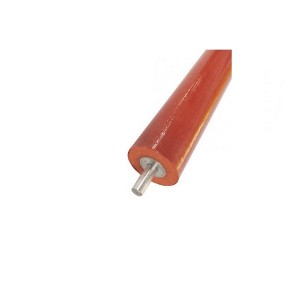Mastering Pressure Roller Replacement Documentation
페이지 정보
작성자 Lela 작성일 25-10-09 13:14 조회 8 댓글 0본문
Clear documentation of pressure roller swaps ensures all technicians follow standardized, safe, and effective protocols
First, compile all manufacturer-specific data on the unit
covering model-specific guidelines, replacement part IDs, and recurring operational problems
This background helps contextualize the procedure and ensures that the correct replacement parts are used
Break down the task into logical, sequential actions
Always initiate the procedure by de-energizing the unit, isolating all power sources, and permitting thermal stabilization
Clearly list all mandatory protective gear technicians must don before beginning work
Never assume the machine is inert—rigorously enforce LOTO procedures to prevent accidental startup
After safety steps, describe how to access the pressure roller
Note which fasteners to remove, خرابی غلطک پرس پرینتر list all required hand or power tools, and describe how to safely relieve system pressure
Use simple language and avoid jargon unless it is commonly understood by the team
Mark any visual identifiers such as tags, stripes, or symbols on components
Proceed to describe the disassembly sequence after access is achieved
Record its rotational direction, mounting method, and the order to unhook auxiliary connections
Visual aids are invaluable—capture before-and-after shots with annotations
Record torque values for any bolts or fasteners and specify whether lubrication is needed during reinstallation
Ensure the replacement roller is positioned precisely using alignment guidelines
Confirm the roller sits flush, rotates without wobble, and aligns with drive components
Follow the reverse procedure meticulously and inspect every clamp, plug, and bolt
Run a brief low-pressure cycle to detect anomalies before full-speed operation
Include troubleshooting tips for common problems such as uneven pressure, noise, or slippage after replacement
Identify root causes such as worn bearings, incorrect tension, or debris—and pair each with a solution
End with a printable, bite-sized verification list for technicians to sign off
Verify no tools left behind, area is clean, and the log entry is complete and accurate
Finally, specify who is authorized to perform this task and how often the documentation should be reviewed or updated
Create a feedback loop where field techs suggest practical edits to the guide

Ensure rapid retrieval through both printed copies at the station and searchable cloud-based archives
Clear, accurate documentation reduces downtime, improves safety, and builds confidence in maintenance operations
댓글목록 0
등록된 댓글이 없습니다.


